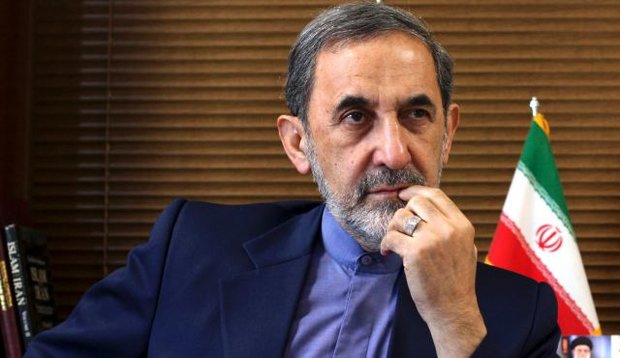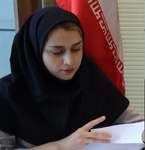"Saudi Arabia has been defeated in Iraq, Yemen and Syria and its delusions of grandeur has been shattered. Waves of the Islamic Awakening were steadily infiltrating into Saudi Arabia and [therefore] they were back to violence to stop possible public dissidence as it is important to them not to face instability inside the country,” Ali Akbar Velayati said in an interview with Basirat News & Analysis Website.
The following is the full text of the interview:
It seems that Riyadh’s attempts to sever its bilateral diplomatic ties with Tehran comes at a time when we are approaching the day of implementation of Vienna 1 and 2 agreements over the political solution of the Syrian crisis. Do you believe that the move by Riyadh is aimed at derailing the international peace-making efforts to resolve the Syrian crisis? What is the Saudi regime looking for by such provocations?
Today, the political center of gravity has shifted to our region. In the past, this region and other regions were affected by international developments, and today the international developments hinge upon the regional developments. Saudi Arabia has always played a fundamental role in creating chaos in the region. Ms. [Benazir] Bhutto during her tenure as [Pakistan’s] prime minister, when all countries shrugged off responsibility about rise of Taliban, said that we alone should not blame for the rise of Taliban and the US, England and Saudi Arabia should also be blame for it; the Britons schemed [to create Taliban], the Americans provided military support and the Saudis took care of the financial support. As Bhutto acknowledged this in an interview as an official and also other reasons that confirm the issue, Saudi Arabia has [long] been playing a destructive role in the region. Al-Qaeda, which was also an extremist Salafi group, was created by the Saudis after the Taliban militant group. Based on this, Saudi Arabia has infiltrated into many religious centers in Islamic countries in order to promote Salafist ideology which has led to the creation of [Takfiri terrorist groups including] al-Nusra Front, Jaish al-Islam (army of Islam), Jiash al-Horr, Boko Haram and similar groups in the West, China, Caucasus, Russia, Pakistan, North Africa, Iraq, Syria and Yemen. In general, wherever an extremist group introduces Islam with extremist principles and easily kills people, like Takfiris and terrorists in the Islamic world, it is linked to Saudi Arabian ideologically.
Some scholars who are affiliated to Saudi Arabia are funded by the kingdom to propagate extremism and also terrorize and kill opponents of the regime under an Islamic cover and this has pushed the world public opinion to take stance against Saudi Arabia. The New York Times recently confirmed this in an article, saying that "ISIL [terrorist group] traces its origin to Saudi Arabia” and Western official and their media outlets accused Saudi Arabia as the fountainhead of Islamic extremism in the world.
Saudi Arabia from the perspective of Western public opinion is condemned and ISIL has been defeated in Syria, Iraq and Yemen. They have been defeated in the battel fields and the delusions of grandeur that the Saudi regime had assumed for itself now has practically been shattered. Before the Saudi aggression against Yemen, everybody considered Saudi Arabia as the Islamic world’s top power; a power that has a determining and pivotal role [in the region’s developments] and that all should obey the monarchy.
The Saudis presumed that they could make the Yemeni people yield to their demands by attacking Yemen and resorting to merciless [airstrikes]. This is why they are relentlessly destroying this Islamic and ancient country and killing its people. For this reason, the Saudis are condemned by the Islamic world’s public opinion.
The Saudis knew that the execution of a cleric [Shiekh Nimr al-Nimr] who only criticized them verbally would have aftereffects, but by doing so they were seeking to change the game and prioritize other issues. Therefore, they killed him and has no explanation for no country has such a principle to agree that a religious leader to be executed in the worst of manner.
How do you see the Saudi regime’s provocative act to cease diplomatic ties with Iran as we are approaching implementation days of the Joint Comprehensive Plan of Action (JCPOA) between Tehran and six world powers as well as the Syrian peace talks? Do you this happened quite by accident?
No, because they [the Saudis] were discontented with the Vienna [nuclear] agreement and expected the Americans and Europeans to throw their weight behind them more fervently. They also expected the Islamic countries to support the extremist forces and terrorists that enjoy the Saudis’ support.
But the Americans have become increasingly frustrated as they have been indirectly defending Saudi Arabia in Syria, Yemen and Iraq for nearly five years. During the ten-month Saudi war on Yemen, the US is providing aerial refuel for the aircraft attacking the country. The US is also supplying the Saudi regime with intelligence regarding gathering centers of [Yemeni] forces. A resolution was passed in favor of Saudi Arabia at the UN Security Council, and during this period a resolution was not allowed to be adopted against them at the UN Security Council.
Facing with the alliance of Russia, Iran, Iraq, Syria and Hezbollah, Saudi Arabia has been defeated in the Syrian war. In Iraq, the Saudi agents which are made up of Takfiris and members of former Ba'athi regime have also faced defeat. Saudi Arabia had pinned their hope on Daesh and al-Nusra Front, but after the killing of leaders of Jaish al-Islam and Jaish al-Horr, the opposition groups have no longer needed military power [to fight] and are weakened in the face the Syrian government; they will be defeated. It should be noted that waves of the Islamic Awakening were steadily infiltrating into Saudi Arabia and [therefore] they resorted to violence to [stop possible public dissidence] as it is important to them not to face instability inside the country. On one hand, they sought to wreak revenge on Iran and the Islamic world in particular. The Islamic World’s scholars along with the Islamic countries had asked Saudi Arabia not to do this and not to kill this prominent cleric as this act amounts to crime as well [kingdoms’] stupidity because it does not solve any problems.
It seems that Saudi Arabia’s decision-making model is similar to an angry person who has become disappointed with a logical solution to serve its own interests.
Recently, the Saudis announced the formation of an Islamic coalition against "terrorism” and on January 3 executed Sheikh Nimr. What is your take on such provocative acts?
This is not the first time that the Saudis have announced the establishment of a military coalition. At the beginning of their war on Yemen, there were talks of an Islamic coalition, but in practice neither Pakistan nor Egypt helped them. Only some countries like Sudan and Djibouti gave hand to the Saudis. Bahrain [regime has long been also helping Riyadh] as it has no sovereignty and has been reigned by the Saudis. After construction of bridge [King Fahd causeway] which links the Bahrain with [the Eastern region] of Saudi Arabia, the Saudis behave in a way as if Bahrain is part of Saudi Arabia. Surely, Bahrain people are opposed to this dependency and these tyrant and stooge rulers of Bahrain who are the servants of Saudi Arabia. Thus, other true Islamic countries, did not join this coalition despite Saudi pressure. Such talks [of forming collation] are empty rhetoric in practice.
Turkish President Recep Tayyip Erdoğan made a visit to Saudi Arabia days before Sheikh Nimr’s execution by Riyadh. Later, both sides announced that they have reached an agreement to set up a "strategic cooperation council" to boost bilateral ties. What is your perspective on this?
As you know, Turkey also criticized Saudi Arabia [over Sheikh Nimr’s execution]. I do not believe that Turkey will ever let its relations with Iran be affected due to Saudi Arabia. Iran and Turkey has good-neighborly relations with Iran and most of the Arab and Islamic countries have criticized the Saudi behavior.
It seems that the Saudis are seeking an exit from their defeats in the region and are trying to persuade the US, as their ally, to play a more serious role in the Middle East’s equation via creation of crisis and fueling the regional tensions. What do you think?
The Americans will not leave their fate in the hands of the Saudis and the Saudis, in practice, cannot play such a game and cannot tell the Americans what to do and not to do. Colin Powell, former US secretary of state and Chairman of the Joint Chief of Staffs, referred to an important point during the tenure of George W. Bush and said, ‘[I advise our Saudi friends to stop disputing with Iran, because it [war with Iran] can send Saudi Arabia to the pre-industrial era within hours. At the time, we are unable to prevent the destruction of the Saudi installations by Iran. And the Saudis will not find even a single phone line in order to contact us’. Colin Powell told Saudi Arabia, "Be careful and do not bite more than you can chew and do not beat war drums in the face of powerful Iran.”
Of course, we are not seeking war [with the Saudi regime] and have always been after good neighborly relations with Saudi Arabia.
Is a US direct military intervention in Syria for resolving the country’s crisis probable?
The Saudis are not within the power to force the US to get involved in Syria and this is Saudi Arabia which is required to accept and implements the US strategy in the region.
With the regional rifts widening due to Saudi unwise actions, do you believe that relations with Europe would play a determining role in the Middle East developments as the Europeans share similar stances with Iran in terms of joint interests and battling terrorism?
We do not seek deepening the crisis with Saudi Arabia and are trying to resolve the issue from the position of strength and power. We also do not predict that the crisis will be worsened as the Saudis have an actual picture of Iran’s might in their minds.
The end of regional tensions and creation of a strong relationship with our neighbors has always been a top priority and in line with our regional interests. From this perspective, how do you see the future of the regional crises?
We hope that the regional crises will be resolved as soon as possible. What we have done over these years has been in line with efforts to end the crises, but given the elements involved in the crises it is not expected that they are resolved in the short and medium term. This is because some want the crises in the region not to end and create crises to in the region and dominate it.
some argue that the US has resorted to a proxy war in the New Middle East to counter the Russian presence in the region, unlike the Bush era, when the US directly came to the region and created dependent strong governments. Do you think that the proxy war would be the strategy of the US in future of the Middle East?
The Americans will not stop their interference in our region. They can either be involved in a proxy war or enter directly in the region; it depends on circumstances.
The Interview was first published here.
LR/PR



























Your Comment